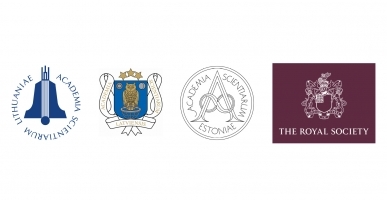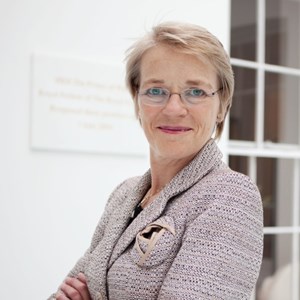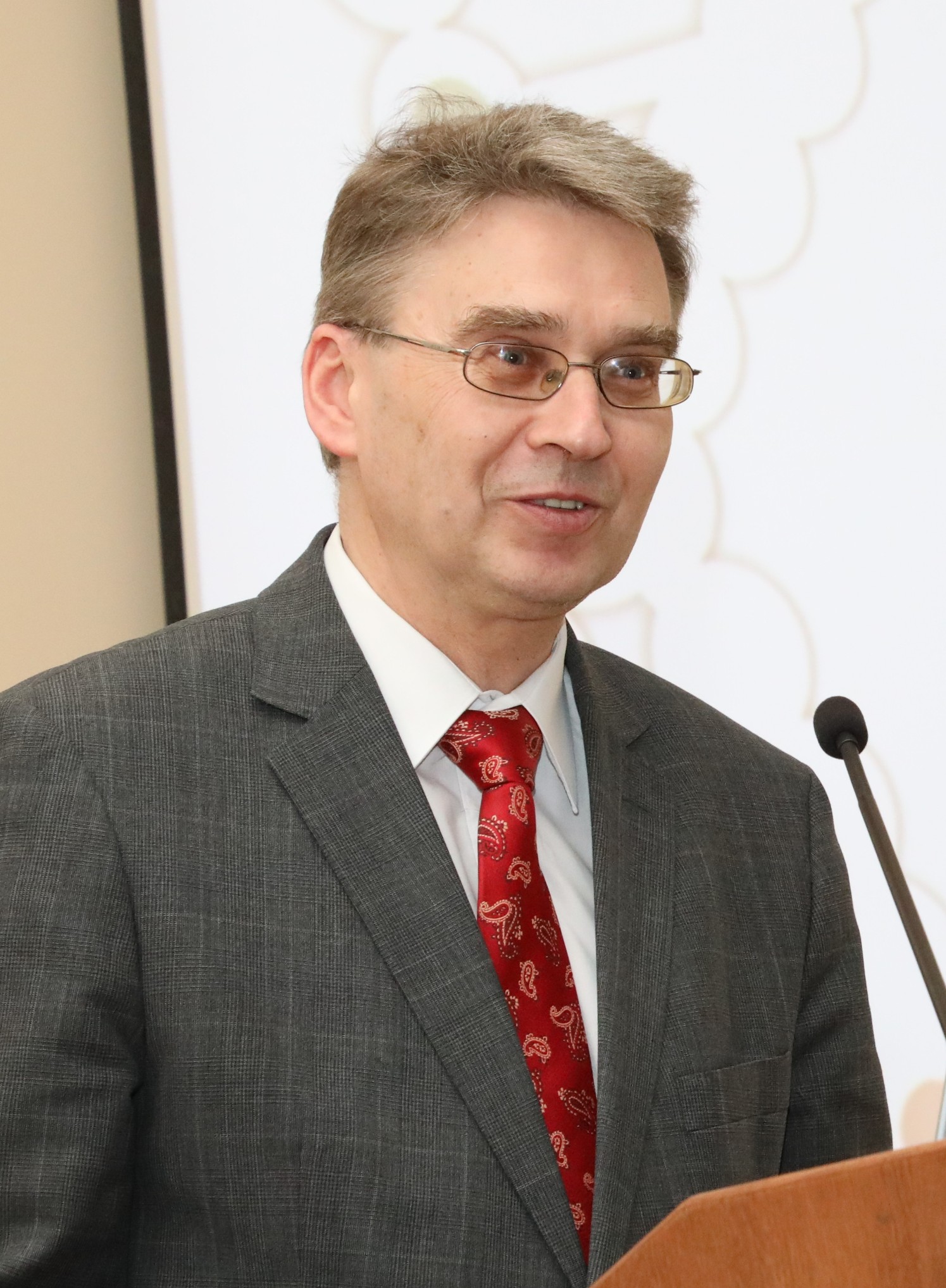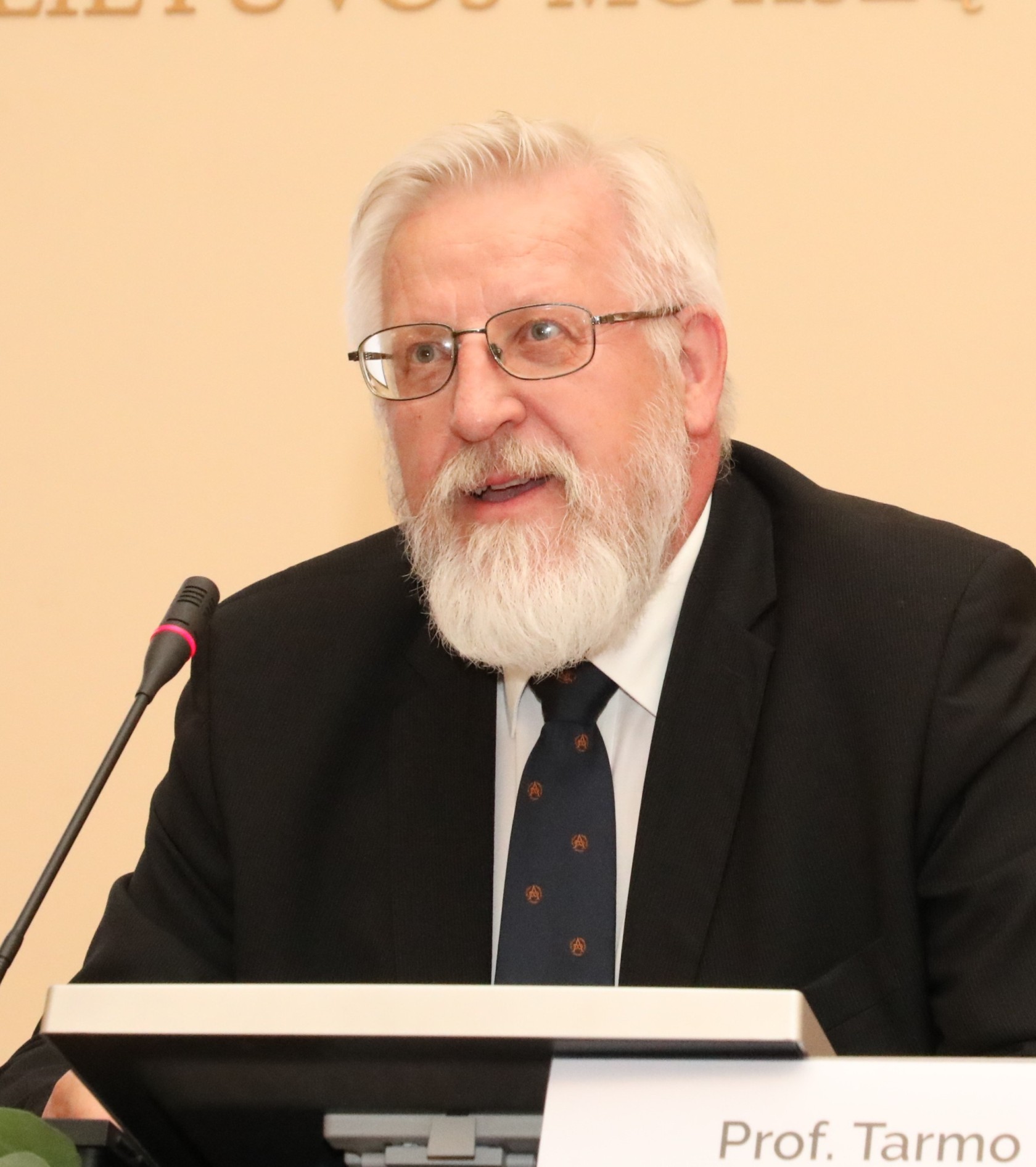Events
Presidents of the Baltic Academies of Sciences and the Royal Society Discuss Closer Cooperation
30 10 2020
On 28-29 October, the Royal Society paid a virtual visit to the Baltic countries. On 28 October, the executives of the Royal Society met the presidents and other representatives of the Baltic academies of sciences. At the meeting, the Royal Society was represented by Dr Julie Maxton, Executive Director, Andrew Allen, Director of International Affairs, and Laura Wilton, Head of International Affairs–Europe and Asia; the Estonian Academy of Sciences was represented by Prof. Tarmo Soomere, President, Terje Tuisk, Head of Development, and Ülle Raud, Head of Cooperation; Prof. Ivars Kalviņš, President-elect of the Latvian Academy of Sciences (assumes power on 1 December 2020), Ilze Trapenciere, Head of the International Department, and Prof. Modris Greitans, Director of the Institute of Electronics and Computer Science, represented the Latvian Academy of Sciences, and the Lithuanian Academy of Sciences was represented by President Prof. Jūras Banys, the academy’s vice-president Prof. Zenonas Dabkevičius, Dr Andrius Bernotas, Head of the Organising Department, and Violeta Skirgailienė, Chief Specialist of the International Relations Group.
The Royal Society of London is an independent academy of sciences of the United Kingdom, which brings together a large number of globally outstanding scientists. Founded on 28 November 1660, it is the oldest academy of sciences in the world that is functioning without interruptions.
The following issues were discussed at the meeting: forthcoming priorities and projects of the academies, the role of academies in providing science-based advice to national governments, for example, on relevant COVID-19-related issues, and international cooperation of the Royal Society. Views were exchanged on the role of academies in international organisations.
Dr Julie Maxton, Executive Director of the Royal Society of London
Dr Julie Maxton, Executive Director of the Royal Society, opened the meeting by pointing out that after Brexit, the Royal Society was prepared to intensify its relations with the European Union in general and the Baltic countries in particular. A discussion about such cooperation was the aim of the virtual meeting.
Much attention was paid to the challenges of COVID-19. The coronavirus pandemic has become a global problem and all available forces should be mustered to solve it. It can serve as an example of single-minded cooperation of scientists from different countries. President Jūras Banys spoke of the board of the Lithuanian Academy of Sciences for qualified evaluation of the Covid-19 infection and dissemination of the latest science-based information about the virus. The board includes specialists of different fields, with mathematicians being very active in its work. The Latvian Academy of Sciences organised two seminars addressing COVID-19 challenges. These events were intended for the representatives of the mass media. In general, Latvian scientists are active in disseminating information on the issues of virus management in the mass media.

Prof. Jūras Banys, President of the Lithuanian Academy of Sciences
Prof. Banys emphasised the importance of further maintenance and strengthening of the international exchange of scientists foreseen by cooperation treaties. In his opinion, this kind of cooperation is especially relevant to the researchers who only recently have received their doctoral degrees. The Royal Society actively supports such exchange of young scientists as well. Prof. Banys reminded the audience of the Memorandum of Understanding between the Royal Society and the Lithuanian Academy of Sciences, which was signed in 1993. A similar joint document could now be signed by all three Baltic academies and the Royal Society. This could be a good platform for cooperation as individual Baltic countries are strong in different areas. For example, Lithuania has outstanding achievements in the field of biochemistry. Information should be collected on the opportunities that would be important for researchers and a cooperation document should be prepared on this basis. Dr Julie Maxton, Executive Director of the Royal Society of London, emphasized the importance of the exchange of researchers taking place on a parity basis so that it was not just visits to the United Kingdom. All attendees supported her view. It was noted how important the dissemination of British science in the Baltic countries and the promotion of the achievements of the Baltic scientists in the United Kingdom were.
Prof. Tarmo Soomere, President of the Estonian Academy of Sciences
Prof. Tarmo Soomere, President of the Estonian Academy of Sciences, said that nowadays it was important for the scientists to put various issues across not only to governments but also to the general public on various issues. He also noted that the Belarusian National Academy of Sciences could also be involved in the cooperation between the Baltic countries and the Royal Society.
Prof. Ivars Kalviņš, President of the Latvian Academy of Sciences
Prof. Ivars Kalviņš, President-elect of the Latvian Academy of Sciences, said that his priority as the President of the Academy would be innovation and therefore he would like to gain such experience from the British. The representatives of the Royal Society stressed that their academy focused on fundamental research, but the applied sciences were also important.
Laura Wilton emphasised how important it was for the Royal Society for the representatives of the United Kingdom to be an integral part of the European scientific community and participate in the activities of international organisations such as EASAC, ALLEA, and others. These organisations can provide advice to policy makers, as is the case with the COVID-19 pandemic. International organisations can be one of the critical tools for collaborating with UK researchers. These organisations should be the voice heard by the European politicians. Several participants of the meeting, Prof. Banys among them, observed that sometimes international organisations duplicate each other’s activities and thus the importance of the problems raised is obscured.
Various meetings of scientists can also be one of the forms of collaboration.
After Brexit, the collaboration between British and foreign scientists should not stop. The Royal Society appealed to the government of the UK asking for more substantial funding for international cooperation.
The most important message of the meeting was that the Royal Society and the Baltic academies want to cooperate and that cooperation can take place in different ways.
Violeta Skirgailienė, Chief Specialist of the International Relations Group
Translated from Lithuanian by Diana Barnard
